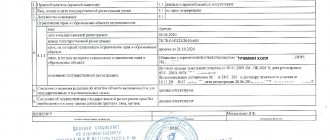Purchasing leased premises under Law No. 159-FZ is no longer temporary.
“Small privatization” was intended as a temporary measure to support small and medium-sized businesses. When the law came into force, its validity period was only two years – until July 1, 2010.
Subsequently, this period was extended three times - first for three years (until July 1, 2013), then for another two (until July 1, 2015) and again for three (until July 1, 2021).
And finally, in July 2021, the time limit on the law was lifted. Law No. 159-FZ became valid indefinitely.
The concept and essence of alienation of state property
Definition 1
Alienation of state property is a type of relationship between the state and various economic entities of the private sector regarding the transfer to them of ownership of property leased from the state.
The state may alienate its property for compensation or free of charge in favor of legal entities and individuals. The procedure for such alienation is provided for by law.
Alienation of state property free of charge is carried out in the following cases:
- upon alienation of regional state property into federal property or municipal property;
- when providing state property to eliminate the consequences of emergencies and natural disasters;
- in other cases provided for by law.
Finished works on a similar topic
- Course work Alienation of state property 460 rub.
- Abstract Alienation of state property 270 rub.
- Test work Alienation of state property 190 rubles.
Receive completed work or specialist advice on your educational project Find out the cost
Note 1
When alienating state property in favor of certain persons, it is possible to grant the preemptive right to acquire this property to those persons who lease this property.
From now on, federal property can also be privatized.
Until now, entrepreneurs could only buy out those leased premises that were state-owned by constituent entities of the Russian Federation or municipally owned. This directly followed not only from the provisions of Law No. 159-FZ, but also from its name.
However, changes made to the law in July 2021 exclude words about property of constituent entities of the Russian Federation from its title and articles. From now on, small and medium-sized businesses can purchase not only municipal, but also federal property on preferential terms.
Paid alienation of property owned by the Russian Federation - Malina Group
Rent, purchase and sale of real estate is carried out only in accordance with the legislation of the Russian Federation.
For different situations, there are different laws defining the requirements and conditions for transactions.
In order to clarify and define as much as possible the process of purchasing rental real estate by a person with a small and medium-sized business, Federal Law 159 was developed.
General provisions of the law
The Federal Law on municipal property in the Russian Federation was adopted by the State Duma on July 4, 2008, and approved by the Federation Council on July 11, 2008. It was last amended on July 1, 2021. The Federal Law on municipal property consists of 10 articles.
This law regulates legal relations between participants during the alienation of state property and during the alienation of state-owned real estate leased by small and medium-sized businesses.
Relations between persons with small or medium-sized businesses privatizing property leased from the state, but not related to the described Federal Law, are regulated by Federal Law No. 178 on state privatization. or mun. property.
Summary of Federal Law No. 159 on the specifics of the alienation of real estate owned by the state or municipally and leased by small and medium-sized businesses:
- 1 tbsp. – the goals and legal relations that are covered by the described Federal Law;
- 2 tbsp. – a list of features and nuances when alienating leased property;
- 3 tbsp. – persons who have a preemptive right to purchase leased property and the process of using the preemptive right;
- 4 tbsp. – the procedure by which persons have the right to exercise their pre-emptive right to acquire leased property;
- 5 tbsp. – the payment procedure according to which persons acquire leased property with a preemptive right;
- 6 tbsp. – consequences and liability for violations and non-compliance with the requirements and conditions for the procedure for carrying out transactions in the field of paid alienation of state or municipal property;
- 7 tbsp. – a list of necessary changes made and entered into force in Federal Law 178 on the privatization of state and municipal property;
- 8 tbsp. – a list of necessary changes made and entered into force in Federal Law 209 on the development of small and medium-sized businesses;
- 9 tbsp. – a list of transitional provisions of the law, additional and final conditions, provisions and requirements;
- 10 tbsp. – the date and process of entry into force of the described law.
The described area is regulated by this Federal Law, Federal Laws No. 178 and 209, the Constitution of Russia and international treaties of the Russian Federation.
Latest amendments
The latest changes to Federal Law 159 were made on July 1, 2017, with the adoption of Federal Law No. 141. Changes were made to Article 10. The phrase “except for the case provided for in Part 4 of this article” was added to Part Three of Article 10.
Part four was also added to Article 10, which states that all transactions carried out for the purpose of renovation of the housing stock, with the alienation of any property from the ownership of the Russian Federation, are regulated by Articles 1 - 6 and 9 of the described Federal Law.
Any actions in such transactions will be regulated by these articles until the end of the renovation period.
According to the third article, the preemptive right can be used by a person only under the following conditions:
- The tenant has the property temporarily for two years or more, with lease agreements drawn up officially and legally;
- On the day the purchase and sale transaction of leased property was concluded, information about the person engaged in small or medium-sized businesses was not excluded from the unified register;
- The person renting the property has no fines, penalties, or late payments;
- The property that the person has rented and is going to buy is not included in the list of those intended for transfer, but owned by the state, in accordance with Federal Law 209;
- The last paragraph became invalid on July 1, 2013.
Thus, Article Three states that persons with small or medium-sized businesses, when alienating state property for compensation, have the right to use the pre-emptive right when purchasing.
Article number six describes the consequences and responsibility of persons in case of violations and non-compliance with the conditions and requirements when making transactions with paid alienation of state property. According to the first paragraph of the article, such transactions with violated requirements and conditions are considered void.
According to the second paragraph of the article, if a small or medium-sized business entity leasing certain state property finds out that the property was sold without using the preemptive right, it has the right to sue. A person has two months to file a lawsuit.
The claim is filed with papers proving that the person did not know about the sale and the preemptive right was not used. In case of a positive court decision, the subject will be able to become the buyer of the property.
Article eight describes the changes made to Federal Law No. 209 “On the development of small and medium-sized businesses in the Russian Federation.”
A 16th point was added to article number nine, according to which among the powers of public authorities is the formation of development and assistance to the infrastructure of subjects and facilities of small and medium-sized businesses.
According to these changes, paragraph 5 was added to Article 13. According to this paragraph, all decisions and actions taken for infrastructure development are published in the media and on the official pages of authorities on the Internet.
Source: https://malina-msk.ru/vozmezdnoe-otchuzhdenie-imuschestva-nahodyaschegosya-v-sobstvennosti-rf/
Renowned tenants now have a second chance.
If the entrepreneur does not enter into a purchase and sale agreement for the leased premises or does not sign the agreement sent to him within thirty days from the date of receipt, he is deprived of the pre-emptive right to purchase. This rule was in effect throughout the ten years of the existence of Law No. 159-FZ.
But thanks to amendments to the law, tenants who refused to purchase or did not sign documents on time can again take advantage of the opportunity for preferential privatization. If the entrepreneur continues to rent the premises, he can send an application for redemption to its owner.
Procedure for alienation of municipal property
Procedure for alienation of municipal property
According to the current legislation, the local government body independently carries out legal regulation in the field of municipal property management: ownership, use, disposal. The procedure for managing municipal property must be determined by the charter of the municipality. Privatization of municipal property is carried out in accordance with federal law and the procedure determined by the regulatory legal acts of the local government body.
Municipal property can be sold under sales contracts (with a mandatory assessment of the market value of the property) in the following order:
1. Real estate under the economic control of a municipal unitary enterprise can be sold only with the consent of the owner - the local government body (in the manner established by the charter of the municipality or other legal act). In this case, this enterprise is a party to the purchase and sale agreement. In this case, the enterprise must provide an economic justification for the proposed transaction. 2. The movable property of a municipal unitary enterprise can be sold by the enterprise independently, unless otherwise established by its charter and legal acts of local government bodies. 3. Property under the operational management of a municipal institution, if it was acquired using funds from income-generating activities permitted by the charter, may be alienated by the institution independently. 4. Property assigned to an institution under the right of operational management and property acquired from budgetary funds cannot be alienated by the institution. A local government body has the right to make a decision to seize into the treasury property that is not used by the institution or used for other purposes, and to decide on its sale (privatization) in the prescribed manner. In order to achieve social, charitable and other goals, municipal property from the treasury may be alienated by decision of a local government body under an agreement of gratuitous transfer (donation) to legal entities and individuals. Real estate that is under the economic management of a municipal unitary enterprise under a gratuitous transfer (donation) agreement can be alienated only by decision of a local government body. Movable property under economic control can be transferred by a municipal enterprise independently under an agreement of gratuitous transfer (donation). An institution has the right, under a gratuitous transfer (donation) agreement, to alienate only that property that was acquired using funds received from income-generating activities. Municipal property can be transferred for temporary use to individuals and legal entities under a lease agreement, a gratuitous use agreement, or a trust management agreement. The decision to alienate municipal property from the treasury under these agreements is made by the local government body. The party to the transfer agreement is the local government body in the field of municipal property management and the person to whom the property is transferred.








